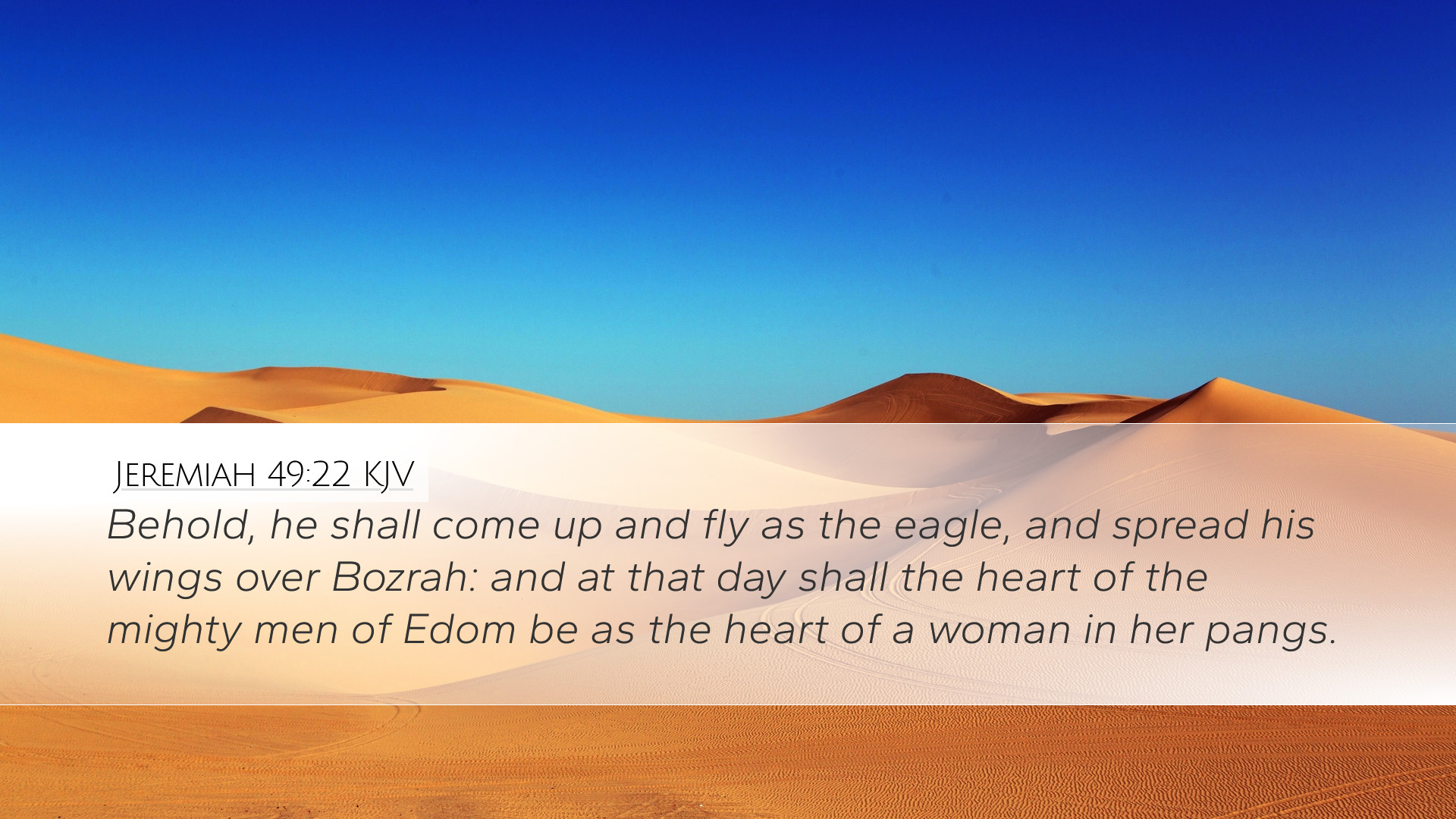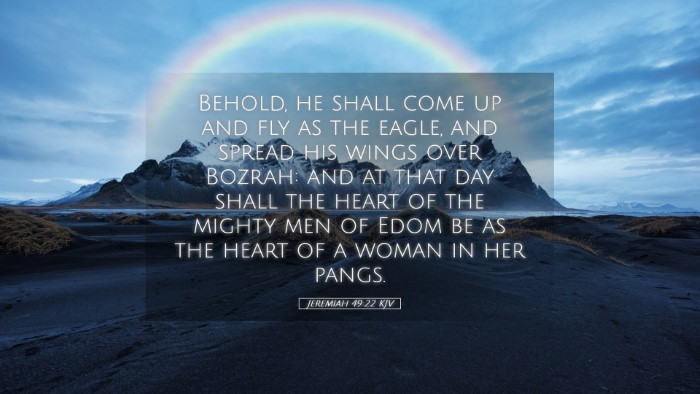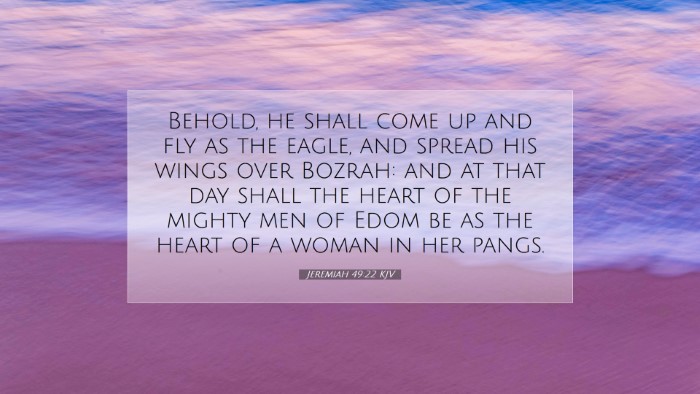Commentary on Jeremiah 49:22
Jeremiah 49:22 states: "Behold, he shall come up and fly as the eagle, and spread his wings over Bozrah: and at that day shall the heart of the mighty men of Edom be as the heart of a woman in her pangs." This verse, rich in imagery and prophetic significance, reveals the impending judgment against Edom and serves as a forewarning of God's sovereignty over nations.
Contextual Background
The Book of Jeremiah is primarily a prophetic work, addressing the impending doom of Jerusalem and surrounding nations. In chapter 49, the judgments against various nations, including Edom, are pronounced. Edom, a descendant of Esau, represents a lineage often at odds with Israel, embodying conflict and judgement.
Thematic Insights
-
The Eagle as a Symbol of Speed and Power:
In this verse, God compares the coming judgment to an eagle—an animal noted for its swiftness and power in flight. Matthew Henry suggests that the eagle's rapid approach symbolizes the suddenness of God's judgment upon Edom, emphasizing that it will come unexpectedly and decisively.
-
The Significance of Bozrah:
Bozrah, a principal city in Edom, represents not just a geographical location but also a focal point of God's impending wrath. Albert Barnes remarks that the mention of Bozrah signifies the fall of the Edomite power center. Its downfall is a metaphor for the broader destruction awaiting the nation.
-
Affective Imagery of Fear and Despair:
The latter part of the verse draws attention to the emotional state of Edom's warriors, likening their fear to that of a woman in labor. Adam Clarke explains that this analogy highlights profound distress and helplessness in the face of imminent danger. It serves to illustrate just how starkly fear can overwhelm even the mightiest of men.
Theological Implications
This verse opens up several theological discussions pertinent to pastors, scholars, and students alike:
-
Divine Judgment:
The text underscores the theme of divine justice, illustrating that no nation or individual is beyond the reach of God's sovereignty. The commentary by Henry suggests that God's hand will bring low the proud and mighty, a reminder of His ultimate authority over all creation.
-
The Nature of Fear:
Exploring the emotional response outlined in the verse offers insight into human vulnerability. The comparison to a woman in labor emphasizes a transformation; fear can lead to a moment of crisis before delivering a change, much akin to how anguish births new beginnings.
-
Hope Amidst Judgment:
Although the verse conveys judgment, it also implicitly invites reflection on God's mercy and the potential for redemption. Scholars studying this passage can reflect on how God’s messages of warning can lead to repentance and renewed relationship with Him.
Practical Applications
For modern readers, especially church leaders and theologians, the lessons from Jeremiah 49:22 can manifest in various forms:
-
Preaching about Accountability:
Jeremiah’s messages can prompt sermons on the importance of accountability before God, highlighting that nations, communities, and individuals must recognize their standing before Him.
-
Encouraging Repentance:
Recognizing the impending judgment—whether personal or communal—can serve as a call to repentance, prompting believers to seek reconciliation with God.
-
Understanding Divine Sovereignty:
As leaders and scholars study this passage, they can encourage congregants to trust in God’s sovereignty, securing their faith in His ultimate control over history and nations.
Conclusion
Jeremiah 49:22 stands as a powerful message reflecting God’s judgment against Edom, rich with imagery that evokes both awe and fear. The layered meanings encapsulated within this verse provide fruitful ground for theological reflection and pastoral application. The unity of imagery, emotion, and divine authority encapsulated in this passage speaks volumes to the human condition in the face of divine will.


